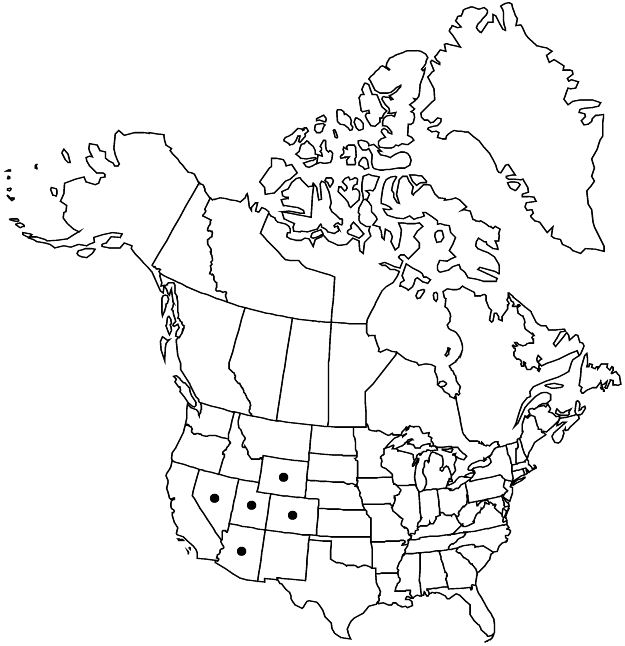Ceanothus martini
Contr. W. Bot. 8: 41. 1898.
Shrubs, deciduous, 0.5–1 m. Stems erect, ascending, or spreading, not rooting at nodes; branchlets green to grayish green or brown, not thorn-tipped, glaucous, round in cross section, flexible or ± rigid, strigillose. Leaves not fascicled; petiole (1–)3–7 mm; blade flat, widely elliptic to suborbiculate, 12–30 × 8–20 mm, base rounded or ± cuneate, margins entire or serrulate distal to middle, not revolute, teeth 23–41, apex obtuse or rounded, abaxial surface pale green, glabrous or veins puberulent, adaxial surface green, slightly shiny, glabrous, veins strigillose; 3-veined from base. Inflorescences axillary, umbel-like or racemelike, 1.5–4 cm. Flowers: sepals and petals white; nectary pale yellow to yellow-green. Capsules 4–5 mm wide, lobed; valves smooth or ± rugulose, crested.
Phenology: Flowering May–Jul.
Habitat: Rocky soils, shrublands, pine-oak and pinyon pine-juniper woodlands, open sites in conifer forests.
Elevation: 1800–3200 m.
Distribution

Ariz., Colo., Nev., Utah, Wyo.
Discussion
Leaves of Ceanothus martini are similar to those of C. ×lorenzenii and small-leaved forms of C. velutinus, with which it has sometimes been confused.
Selected References
None.